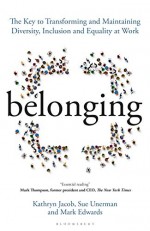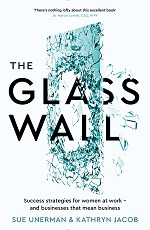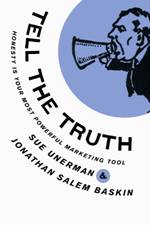We are going through a very large jerk.
There are roughly two theories about how evolution works. Charles Darwin, who wrote the book on evolution, was a believer in gradualism, slow change over millennia. For many years this was regarded as scientific fact. But if this was the case you would expect to see a record in fossils of small incremental change within a species. But fossil records don’t always back this theory. Darwin explained this by saying that there were gaps in the records.
One hundred and so years later, in 1972, evolutionary scientists Stephen Jay Gould and Niles Eldredge suggested that Darwin had got this wrong. They considered that the gaps in the records werent’ gaps but were real. That not everything evolves gradually but that long periods of little change are disrupted by sudden huge change. They termed this mode of evolution “punctuated equilibrium.” This means that species are generally stable, changing little for millions of years. This leisurely pace is “punctuated” by a rapid burst of change that results in a new species.
After a huge scientific row, this was resolved by most experts into an understanding that both gradualism and punctuated equilibrium were true. This became known as the theory of creeps and jerks.
We are going through a big jerk now in business. Many business practices that might have changed over a period of months or even years have changed and changed suddenly. Change that might have taken 5 years to bed in is happening fast, over a period of weeks.
One obvious example of this is the way we are all now conducting meetings. Microsoft Teams, Zoom, Google Hangouts have all been available for meetings for years. Conducting a global meeting used to mean jumping on a plane. Now any of us could be in a meeting with colleagues anywhere in the world in the next half an hour. Now we are all working globally. One senior exec has said that he is having more meetings now than he ever has because the team are usually at airports, out to dinner or on a plane. Now, with everyone working from home, its easier to arrange meetings and in some ways its easier to get closer to colleagues and team members than ever.
It is now well recorded that in some respects media behaviours and attitudes are changing at a widespread and unanticipated scale and speed. Some commentators are saying this is human evolution turbo-charged.
Darwin also said that it’s not the strongest or the most intelligent that survive, but those most responsive to change. The ability to pivot, to react and to take advantage of the opportunities of this crisis is currently crucial. This is easy to say. No-one currently knows when or how we are going to come out of this. It isn’t going to be easy or quick for economies to recover, for new business models to stabilise.
This isn’t like previous crises. We are living through history being made. What happens next isn’t about returning to normal any time soon. A new normal will emerge, but for now we are operating in the new abnormal.
Now is the time to begin to re-imagine what the new abnormal means for your business.
As industry expert and WPP global president of business intelligence Brian Wieser says: “Now is a time to re-invent, to rethink, to optimise the forest not just the trees, a moment of reset the growth agenda to come out stronger than ever.”
The goal, tough as it might seem right now, must be to frame the new developments, and tech and digital adoption as an opportunity for the business and to get closer to customers. This is what leaders need to focus on – what can we do to reframe and re-imagine and not just what must we cut.
Jerks are painful, more painful than creeps, but teams that are resilient enough to navigate them will get through these difficult times best.



What is your video background saying about you?
Tuesday, May 26th, 2020What does your working space, and what you choose to reveal about it say about you?
We are in the business of brand building, we know how crucial it is to consider what is on show as well as what is said or done. You will be judged on your appearance whether or not this is even fair. And now, you will be judged on your background (this might not be conscious but is an instinctive System 1 thinking judgement,) whether or not this is fair too.
Most people I speak to on video call reveal their actual background. In my own case this is a disorganized but very wide-ranging collection of books that actually don’t belong to me but to other family members, and a mantelpiece cluttered with mementoes. My colleague Claudine has been in front of a steely wall all week this week, and my CEO Kate’s collection of cookery books, which she frequently appears in front of in our weekly Town Hall meetings, has sparked curiosity about her favourite chefs.
The decision to use a fake background speaks volumes too of course. I was on one call where the background of an office façade was so realistic that I assumed that the participant was a key worker – but he just hadn’t wanted to reveal his room. If you do want a fake background then there’s a rich assortment here from the BBC. Then there are people whose living space just make you envious. I have been told of one CEO whose palatial home is so aspirational (there are statues, obviously expensive real art and pillars) that his team recommended that he relocate to a smaller room in the house to stay empathetic with his more junior staffers. There is a new dimension to bringing your whole self to work, as we now get to nose around each other’s homes on a daily basis.
Anecdotally there seems to be some gender difference as well as the obvious difference between those people in a one bed flat or sharing space with others and people fortunate enough to be able to settle in a regular make-shift office area or a fit for purpose study.
More women than men (however senior they are) seem to be working from bedrooms. More mums than dads seem to be interrupted by young children. Many mums have disclosed their worry and guilt about letting home schooling standards slip. This additional mental load is documented in the Economist’s briefing on the 90% economy that they are calling the “new ‘nearly normal’” where they write: “Women are more likely to take care of home-schooling and entertainment of bored children, meaning their careers suffer more than men’s. Research finds that the productivity of female economists has fallen relative to male ones, as measured by the production of research papers, since the pandemic began… the growing gender divide in productivity points to the final big problem with the 90% economy: that it is unfair.”
Although it is difficult to complain that the current way of working is harder than before (given that the comparisons with ICU workers leave us with nothing to complain about) it is true that day long video calls are tiring. It may be true that it is easier on introverts than extroverts as introverts don’t need so much stimulus from others. However Direct Line Group MD of marketing and digital Mark Evans pointed out to me recently: “There’s extra ‘cognitive load’. Your brain is having to work much harder to interpret the reactions of other people in the many mini screens in the meeting since you don’t have the usual cues from face-to-face mannerisms and micro-gestures. Simultaneously your brain is constantly interpreting your own image staring back at you. It’s no surprise that it’s exhausting”
There are some upsides to video conferencing. There’s no geographical barrier, I have relished calls with colleagues in China and San Francisco being the norm. For those whose emotions are an open book, you can hide your immediate reactions by turning off your camera which sometimes, as we point out in The Glass Wall book, can be helpful when you need a balanced perspective to the emotional CoronaCoaster of the working week.
This tactical fall back might be necessary, but what is needed above all is openness, looking each other in the eye, reaching out to each other, and authentic leadership through these most difficult times.
Posted in MediaComment | No Comments »